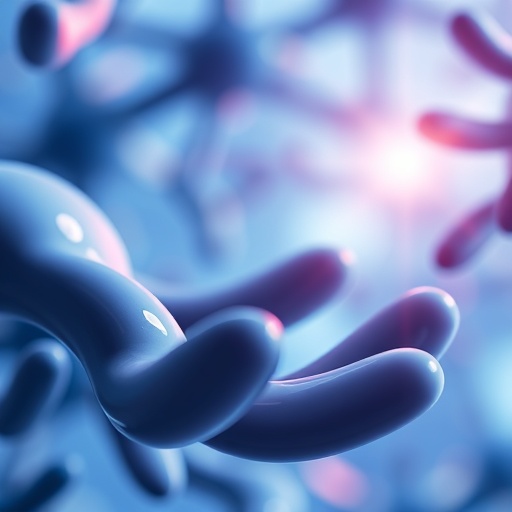In the relentless battle against advanced cancers, one of the most daunting challenges is the tumor’s ability to develop resistance to the very treatments designed to eradicate it. This resistance, often culminating in aggressive tumor growth and metastasis, severely limits therapeutic options for patients afflicted with late-stage malignancies. Among the molecular culprits driving this resistance is a protein known as integrin αvβ3. This integrin is notably absent in healthy tissues but is markedly enriched in various aggressive cancers, including those originating in the lung, pancreas, and prostate. Historically, therapeutic strategies targeting integrin αvβ3 have sought to harness the body’s immune system, primarily by engaging natural killer (NK) cells. However, despite the theoretical promise, these antibody-based treatments fell short in clinical trials, largely attributed to the paucity of NK cells within the tumor microenvironment, which undermined the immune response.
Recent breakthroughs from researchers at the University of California San Diego School of Medicine have unveiled a novel therapeutic paradigm that sidesteps the limitations imposed by NK cell scarcity. By diving deep into the immune landscape endemic to αvβ3-positive tumors, the team engineered an innovative antibody specifically designed to activate macrophages rather than NK cells. Macrophages constitute a substantial proportion of the immune infiltrate in these tumors, making them an ideal target for therapeutic reprogramming. The newly developed anti-αvβ3 antibody effectively reeducated macrophages, enhancing their tumoricidal activity and eliciting robust antitumor responses. This was demonstrated not only in carefully controlled mouse models but also in ex vivo cultures of patient-derived tumor samples, underscoring its translational potential.
Central to the efficacy of this therapeutic antibody is its ability to modulate macrophage function by upregulating inducible nitric oxide synthase (iNOS). iNOS plays a pivotal role in the immune system’s arsenal by catalyzing the production of nitric oxide (NO), a potent effector molecule capable of inducing apoptosis in infected or malignant cells. By boosting iNOS expression within tumor-associated macrophages, the antibody effectively transforms these cells from tumor accomplices into potent killers. This reprogramming shifts the tumor microenvironment from immunosuppressive to immunostimulatory, disrupting tumor growth dynamics and enhancing cancer cell clearance.
Crucially, the antitumor activity orchestrated by this therapy is macrophage-dependent. Experimental depletion of macrophages in preclinical models resulted in a complete loss of the antibody’s therapeutic effect, validating that macrophages are the indispensable mediators of tumor cell eradication. Conversely, depleting NK cells did not hamper the antibody’s efficacy, further highlighting the innovative shift in immune targeting away from NK-dependent mechanisms. This distinction addresses a critical bottleneck in previous approaches, where insufficient NK cell presence limited clinical success.
The selective expression profile of integrin αvβ3 offers additional therapeutic advantages. Since this integrin is virtually undetectable in healthy tissues, the antibody exhibits exceptional specificity for aggressive tumor cells, minimizing collateral damage to normal cells and reducing the potential for adverse side effects inherent to broader immunotherapies or chemotherapies. This specificity not only enhances safety profiles but also opens the door for higher therapeutic dosages or combination regimens that can amplify antitumor efficacy without exacerbating toxicity.
Moreover, the conceptual innovation offered by this antibody design serves as a compelling proof-of-concept for personalized immunotherapy. By tailoring antibody therapies to exploit the dominant immune cell populations within a tumor, this approach pioneers a new frontier in cancer treatment customization. Given the heterogeneous nature of tumors and their microenvironments, leveraging the prevalent immune actors—be they macrophages, NK cells, or other immune subsets—could become a cornerstone strategy in overcoming resistance mechanisms across diverse cancer types.
The impetus for this research was driven not only by the biological insights into tumor-immune interactions but also by the urgent clinical need for more effective interventions in drug-resistant cancers. Aggressive tumors characterized by high integrin αvβ3 expression often herald poor prognoses. The successful engagement of macrophages through an αvβ3-targeting antibody represents a therapeutic victory that could transform patient outcomes, offering new hope where conventional treatments have faltered.
The breadth of the study encompassed rigorous experimentation, including in vivo mouse tumor models that faithfully recapitulated human tumor biology and ex vivo analyses of freshly obtained patient tumor specimens. This dual validation underscores the antibody’s potential applicability across both experimental and real-world clinical scenarios. Importantly, these findings pave the way for subsequent clinical trials aimed at evaluating safety and efficacy in human patients, a critical step toward potential regulatory approval and clinical adoption.
The development of this antibody therapy was spearheaded by Dr. Hiromi I. Wettersten, an assistant professor at UC San Diego School of Medicine, whose multidisciplinary expertise bridges pathology and oncology immunotherapy. The research was supported by significant funding sources, including the National Institutes of Health and pioneering biotech entities like Alpha Beta Therapeutics, reflecting the high-impact and translational nature of this work.
Future directions for this research are expansive and promising. The antibody optimization platform underlying this approach could be adapted to target other tumor-specific antigens and immune cell types. By doing so, it holds the promise of rejuvenating a broad spectrum of immunotherapies, many of which have been hampered by tumor resistance and immune evasion tactics. The modularity of this immunological reprogramming strategy could form the foundation of next-generation cancer immunotherapies that are both highly effective and safe.
In conclusion, this breakthrough exemplifies a paradigm shift in oncology therapeutics by demonstrating how an intimate understanding of tumor immunobiology can inform the design of targeted interventions that capitalize on the tumor’s own immune ecosystem. By turning tumor-associated macrophages into allies in the fight against cancer, the new anti-αvβ3 antibody not only overcomes previous therapeutic limitations but also sets a new standard for precision immunotherapy. As this research advances toward clinical translation, it heralds a future where even the most aggressive, treatment-resistant cancers may be effectively controlled or eradicated through intelligent, immune-centric strategies.
Subject of Research: Innovative immunotherapy for treatment-resistant aggressive cancers targeting integrin αvβ3 to activate macrophage-mediated tumor cell killing.
Article Title: Macrophage-Activating Anti-αvβ3 Antibody Offers New Hope Against Aggressive, Drug-Resistant Cancers
News Publication Date: Not specified
Web References: https://aacrjournals.org/mct/article-abstract/doi/10.1158/1535-7163.MCT-25-0300
Keywords: Bioengineering, Cancer, Antibodies




